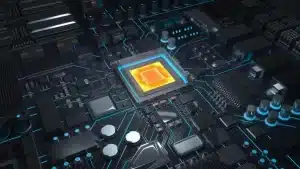I. Understanding Quantum Computing:
-
The Basics of Quantum Mechanics:
- Quantum mechanics principles: superposition, entanglement, and uncertainty.
- Qubits as the basic building blocks of quantum computing.
- Quantum gates and quantum circuits for manipulating qubits.
-
Quantum Supremacy:
- Defining quantum supremacy and its significance.
- The milestone achieved by Google’s Sycamore quantum processor.
- The exponential speedup potential of quantum computers over classical computers.
II. Quantum Computing Technologies:
-
Different Approaches to Quantum Computing:
- Superconducting qubits and their implementation in systems like IBM’s Q System One.
- Trapped ion qubits and their application in systems like IonQ’s quantum computers.
- Topological qubits and their potential for error correction.
-
Quantum Computing Hardware:
- Cryogenic cooling systems and dilution refrigerators for maintaining low temperatures.
- Control systems and precision electronics for manipulating qubits.
- Quantum error correction and fault-tolerant systems.
-
Quantum Computing Architectures:
- Quantum annealing and adiabatic quantum computing.
- Quantum gate-based models and universal quantum computers.
- Hybrid quantum-classical systems for optimization and simulation.
III. Potential Applications of Quantum Computing:
-
Optimization and Simulation:
- Solving complex optimization problems in logistics, finance, and supply chain management.
- Simulating quantum systems for drug discovery, materials science, and climate modeling.
-
Cryptography and Cybersecurity:
- Developing quantum-resistant encryption algorithms.
- Enhancing secure communication and data privacy.
-
Machine Learning and Artificial Intelligence:
- Improving pattern recognition and data analysis.
- Enhancing the training of machine learning models.
-
Quantum Chemistry:
- Advancing the study of chemical reactions and properties.
- Accelerating the design of new drugs and materials.
IV. Challenges and Future Directions:
-
Scalability and Error Correction:
- Overcoming noise and decoherence in quantum systems.
- Developing robust error correction codes and fault-tolerant quantum computing.
-
Hardware and System Complexity:
- Designing more stable and reliable qubits.
- Reducing the physical footprint and power consumption of quantum computers.
-
Accessible Quantum Computing:
- Democratizing quantum computing through cloud-based platforms.
- Increasing collaboration between academia, industry, and research institutions.
-
Quantum Algorithms and Software:
- Developing quantum algorithms for specific use cases.
- Optimizing compilers and programming languages for quantum computing.
HISTORY OF QUANTUM COMPUTING

The story of quantum computing begins with the birth of quantum mechanics in the early 20th century. In 1900, physicist Max Planck introduced the concept of quantized energy, which laid the foundation for quantum theory. Over the following decades, scientists such as Albert Einstein, Niels Bohr, Werner Heisenberg, and Erwin Schrödinger made significant contributions to the development of quantum mechanics, unraveling the bizarre and counterintuitive behavior of particles at the quantum level.
In the 1980s, the concept of using quantum systems to perform computations emerged. Physicist Richard Feynman proposed that classical computers would struggle to simulate quantum systems effectively. He suggested that by harnessing the principles of quantum mechanics, it might be possible to build computers that would surpass the capabilities of classical machines for certain tasks.
The idea gained further traction in the 1990s when physicist Peter Shor discovered a quantum algorithm that could efficiently factor large numbers, a problem that forms the basis of many encryption algorithms. Shor’s algorithm demonstrated the potential for quantum computers to break existing cryptographic systems, sparking interest and concern within the field of cybersecurity.
In 1994, mathematician Peter Shor’s algorithm caught the attention of mathematician and computer scientist Lov Grover, who developed a quantum algorithm that could provide quadratic speedup for searching unsorted databases. Grover’s algorithm opened up possibilities for solving a wide range of search and optimization problems more efficiently than classical algorithms.
As theoretical breakthroughs unfolded, the challenge remained to build practical quantum computers capable of executing these algorithms. In the late 1990s and early 2000s, significant progress was made in experimental implementations of quantum systems. Researchers began working on different types of qubits, the fundamental units of quantum information.
Superconducting qubits, which rely on the properties of superconducting circuits, emerged as a leading technology for quantum computing. Other approaches, such as trapped ion qubits, topological qubits, and photonic qubits, were also explored. These various technologies aimed to achieve the necessary conditions for maintaining the delicate quantum state and performing quantum operations.
In 2011, the first commercially available quantum computer was introduced by the Canadian company D-Wave Systems. It utilized a specialized approach called quantum annealing for solving optimization problems. Although the D-Wave system was not a universal quantum computer capable of running all quantum algorithms, it marked an important milestone in the field.
In 2016, Google’s Quantum AI team made headlines by announcing their achievement of quantum supremacy, a term coined by John Preskill. They developed a superconducting qubit-based quantum processor called Sycamore and demonstrated its ability to solve a specific problem faster than any classical computer could.
Today, major technology companies like IBM, Microsoft, Google, and startups like Rigetti Computing and IonQ, among others, are actively pursuing quantum computing research and development. They are focusing on improving qubit stability, increasing the number of qubits, and enhancing error correction techniques to make practical quantum computers a reality.
While quantum computers are still in their early stages, they hold immense promise for solving complex problems in optimization, cryptography, drug discovery, materials science, and more. Researchers and engineers continue to push the boundaries of quantum computing, aiming to overcome challenges such as decoherence, noise, scalability, and hardware complexity.
As the story of quantum computing unfolds, it represents a paradigm shift in computing capabilities, offering the potential to transform industries, revolutionize scientific research, and unlock new frontiers of knowledge and technological advancements. The journey to fully harnessing the power of quantum computing is ongoing, with exciting breakthroughs and discoveries yet to come.
As of my knowledge cutoff in September 2021, several quantum computing platforms and technologies were available for research and exploration. However, it’s important to note that the field of quantum computing is rapidly evolving, and there may have been further developments since then. Here are some of the quantum computing platforms that were accessible at that time:

- IBM Quantum Experience: IBM provides access to their quantum computers through the IBM Quantum Experience platform. Users can access and experiment with real quantum systems with varying numbers of qubits, as well as utilize simulation capabilities.
- Google Quantum Computing: Google has been at the forefront of quantum computing research. They developed the Sycamore quantum processor and achieved quantum supremacy, demonstrating the ability to solve a computational problem that is infeasible for classical computers.
- D-Wave Systems: D-Wave Systems focuses on quantum annealing, a specific type of quantum computing. They offer commercial quantum computers, such as the D-Wave 2000Q system, designed for solving optimization problems.
- Rigetti Computing: Rigetti Computing provides access to their quantum computers through their cloud-based platform, Forest. Users can experiment with quantum algorithms and applications using Rigetti’s superconducting qubit systems.
- IonQ: IonQ focuses on trapped ion qubits. They have developed quantum computers based on ion trapping technology and offer access to their systems through their cloud-based platform.
- Microsoft Quantum Development Kit: Microsoft provides a software development kit (SDK) called the Quantum Development Kit. It includes a quantum programming language called Q# and tools for simulating quantum programs. While Microsoft doesn’t currently have their own quantum hardware, they are investing in topological qubit research.
- Amazon Braket: Amazon offers a quantum computing service called Amazon Braket, which provides access to quantum hardware from different technology providers, including Rigetti, IonQ, and D-Wave. It allows users to run quantum algorithms and simulations.
It’s important to keep in mind that quantum computing technology is still in its early stages, and the current systems have limitations such as noise, decoherence, and the number of qubits available. However, these platforms provide valuable resources for researchers, developers, and enthusiasts to explore quantum algorithms and develop applications that can leverage the power of quantum computing.
Conclusion
Quantum computing represents a new frontier in the world of technology, with the potential to transform industries and tackle problems that were previously unsolvable. While the field is still in its infancy, remarkable progress has been made in hardware development, algorithm design, and applications. As researchers and engineers continue to overcome challenges and unlock the full potential of quantum computing, we can expect to witness groundbreaking advancements that will shape the future of technology and our understanding of the universe.

